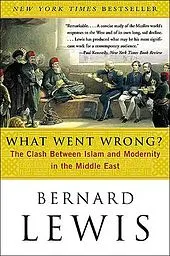City Lights (1931)
Written, Produced, Directed, Acted: Charlie Chaplin

Hailed as one of the best movies of all time, this silent film was released when sound system was already coming to the mainstream. Chaplin also wrote the musical score. The famous musical tune in it, 'La Violetera', was contested for copyright infringement and was won by its Spanish composer Jose' Padilla.
Keeping with Chaplin's political views, this story paints a very impersonal picture of modern capitalist living. It is comical to see (besides Chaplin's antics) how the general public is seen in such a hurry to be heading to nowhere. They party in such a meaningless way without actually enjoying themselves. It seems as if the revelry is forced upon them. Almost robotic, they carry on their life after all the merrymaking without any attachments.
Town folks only seek for you when they are in dire straits or in need of a shoulder to cry on. Otherwise it just everybody with their ways.
In his own slapstick ways, Chaplin resumes his Tramp persona to bring forth the above messages. He rescues a suicidal and drunk rich man who repeatedly does not have a recollection of him when he is sober. Charlie's love interest is a blind flower girl. He helps her with eviction and for eyesight restoration surgery. Like a Franciscan priest, he bears suffering for the wellbeing of others.
https://www.facebook.com/cinephilia.my/
Written, Produced, Directed, Acted: Charlie Chaplin

Hailed as one of the best movies of all time, this silent film was released when sound system was already coming to the mainstream. Chaplin also wrote the musical score. The famous musical tune in it, 'La Violetera', was contested for copyright infringement and was won by its Spanish composer Jose' Padilla.
Keeping with Chaplin's political views, this story paints a very impersonal picture of modern capitalist living. It is comical to see (besides Chaplin's antics) how the general public is seen in such a hurry to be heading to nowhere. They party in such a meaningless way without actually enjoying themselves. It seems as if the revelry is forced upon them. Almost robotic, they carry on their life after all the merrymaking without any attachments.
Town folks only seek for you when they are in dire straits or in need of a shoulder to cry on. Otherwise it just everybody with their ways.
In his own slapstick ways, Chaplin resumes his Tramp persona to bring forth the above messages. He rescues a suicidal and drunk rich man who repeatedly does not have a recollection of him when he is sober. Charlie's love interest is a blind flower girl. He helps her with eviction and for eyesight restoration surgery. Like a Franciscan priest, he bears suffering for the wellbeing of others.
https://www.facebook.com/cinephilia.my/










